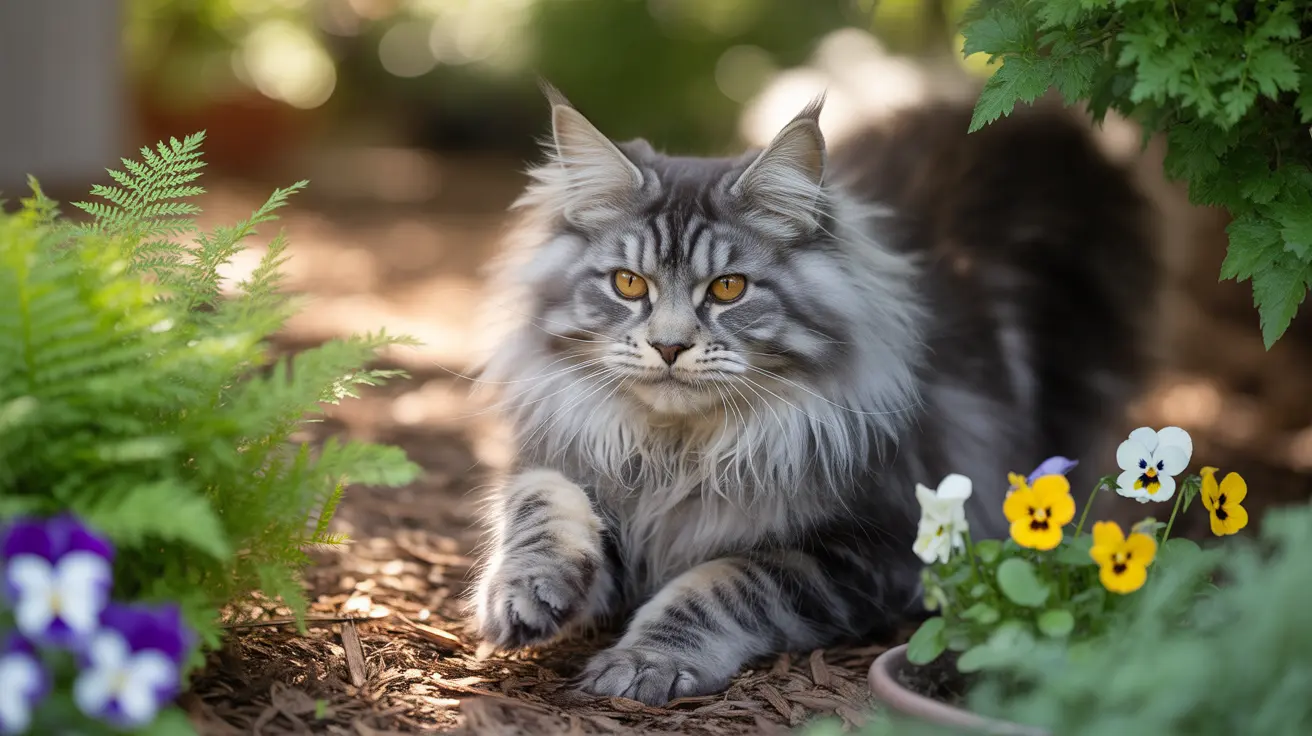Dealing with cats in your mulched garden beds can be frustrating for any homeowner or gardener. Whether you're contending with your own pets or neighborhood cats, keeping these curious felines out of mulch requires a strategic approach that's both effective and humane. This comprehensive guide will explore proven methods to protect your landscaping while ensuring the safety and well-being of our feline friends.
Understanding Why Cats Are Attracted to Mulch
Before implementing deterrent strategies, it's crucial to understand what makes mulch so appealing to cats. Mulch provides a soft, warm surface that mimics natural substrates cats seek for elimination and relaxation. The material's texture makes it perfect for digging and covering waste, while its heat-retention properties create an inviting spot for lounging, especially during cooler weather.
Physical Barriers: Your First Line of Defense
One of the most effective ways to keep cats out of mulch is by installing physical barriers. Lay chicken wire or hardware cloth directly on the mulch surface, cutting holes where needed for plants. This creates an uncomfortable walking and digging surface without harming the cats.
Commercial options like plastic mats with dull spikes (often called "scat mats") provide another humane deterrent solution. These can be easily placed throughout mulched areas and covered lightly with additional mulch to maintain aesthetics.
Natural Deterrents and Repellents
Many natural substances can effectively discourage cats from entering mulched areas. Citrus peels, coffee grounds, and certain essential oils like lavender or citronella create scents that cats naturally avoid. These solutions are safe for both plants and animals while being environmentally friendly.
Strategic Planting Choices
Consider incorporating plants that naturally repel cats into your garden design. Options include:
- Coleus canina (known as the "scaredy cat plant")
- Rue
- Lavender
- Rosemary
- Peppermint
Alternative Surfaces and Mulch Types
The type of mulch you choose can significantly impact its attractiveness to cats. Consider using:
- Large bark chips instead of fine mulch
- River rocks or decorative stones
- Pine cones mixed with traditional mulch
- Cork mulch, which cats find less appealing
Creating Cat-Friendly Zones
Sometimes the best defense is a good offense. Designate a specific area of your yard as a cat-friendly zone, complete with:
- A separate sandpit for elimination
- Catnip or cat grass plantings
- Comfortable lounging spots away from mulched areas
Maintenance and Prevention
Regular maintenance plays a crucial role in keeping cats away from mulch:
- Keep mulch beds raked and even
- Remove any waste promptly
- Maintain consistent moisture levels
- Repair or adjust deterrents as needed
Frequently Asked Questions
What are the most effective humane ways to keep cats out of mulch beds in my garden?
The most effective humane methods include installing physical barriers like chicken wire, using commercial scat mats, and applying natural repellents such as citrus peels or coffee grounds. Creating alternative spaces for cats can also help redirect their attention away from mulched areas.
Which types of mulch are least attractive to cats and help prevent digging or littering?
Larger bark chips, river rocks, and stone mulch are less appealing to cats. Avoid fine, soft mulches that are easy to dig in. Pine cones and cork mulch can also serve as effective deterrents while maintaining garden aesthetics.
How can I use physical barriers or natural repellents to deter cats from disturbing my mulch?
Layer chicken wire or hardware cloth directly on the mulch, cutting holes for plants. Alternatively, use commercial scat mats or create natural barriers using pine cones and thorny prunings. Natural repellents like citrus peels, coffee grounds, or commercial cat deterrent sprays can be applied regularly.
Are there safe plants or scents that naturally keep cats away from mulched areas?
Yes, several plants naturally repel cats, including Coleus canina, rue, lavender, rosemary, and peppermint. Essential oils like citronella, lemongrass, and lavender can also be effective when used safely and properly.
What alternative spots can I create in my yard to redirect cats and protect my mulch beds?
Create a designated cat-friendly area away from mulched beds by installing a sandbox or loose soil patch. Plant catnip or cat grass in this area, and provide comfortable lounging spots to encourage cats to use this space instead of your garden beds.
By implementing these strategies and maintaining consistency in your approach, you can effectively keep cats out of mulch while ensuring both your garden and local felines remain healthy and happy. Remember that combining multiple methods often yields the best results, as cats can be persistent and may adapt to single deterrent strategies over time.






